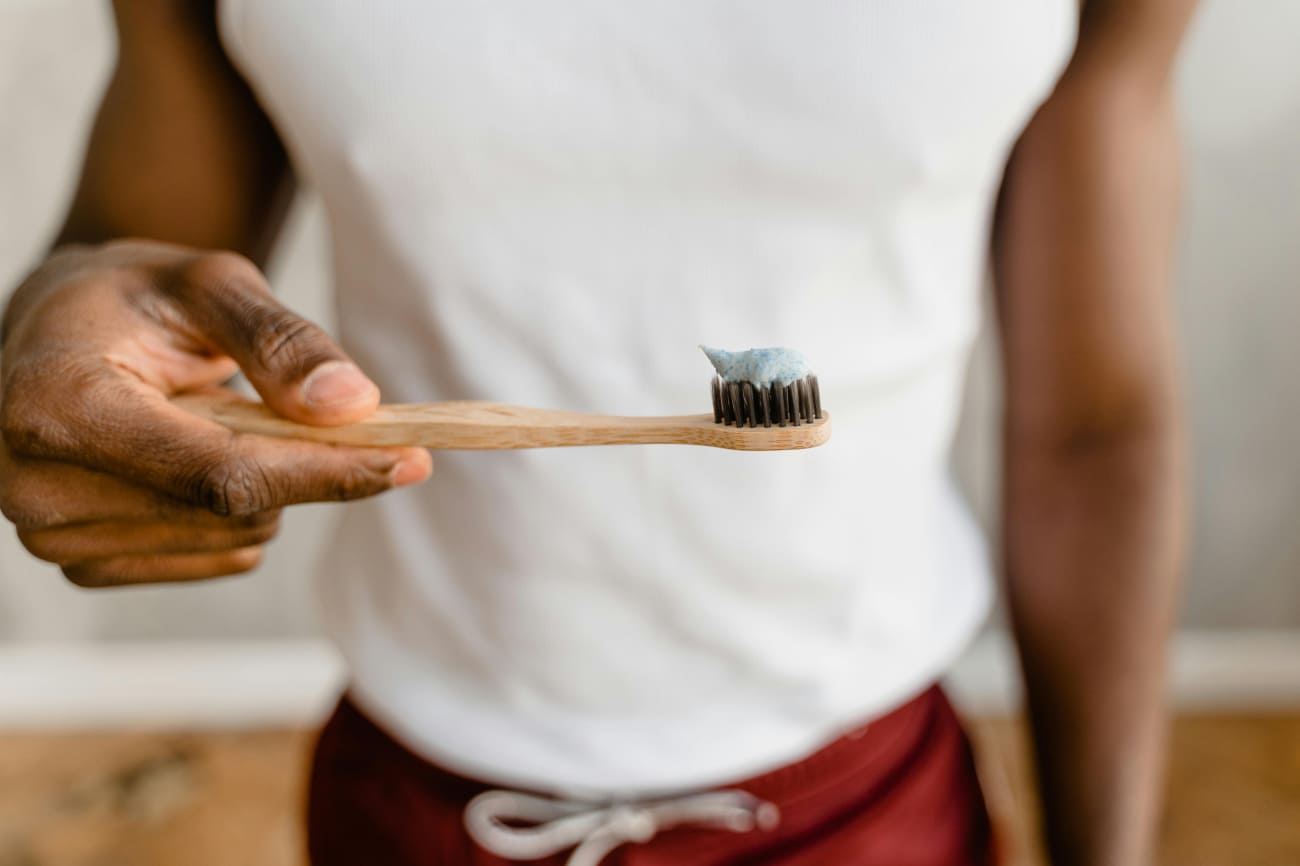Do Teeth Whitening Toothpaste Truly Work?

In a world where selfies rule and first impressions matter, having a radiant smile is more desirable than ever. Walk into any supermarket or pharmacy, and you'll find shelves lined with teeth-whitening toothpaste promising to give you that perfect pearly glow. But do these products truly work, or are they just another marketing gimmick?
Here, we understand the science behind teeth-whitening toothpaste, examining whether these products live up to their hype.
-
How Whitening Toothpaste Works
Teeth-whitening toothpaste is designed to remove surface stains on teeth's enamel. These stains are typically caused by food, drinks like coffee and wine, and tobacco use. Whitening toothpaste contains mild abrasives, such as silica, which gently scrub away these stains, and special chemicals, such as hydrogen peroxide or carbamide peroxide, which can help break down stains for a brighter appearance.
Some toothpaste brands also include blue covarine, a chemical that adheres to the surface of your teeth and gives an immediate optical illusion of whiteness. However, these effects are temporary and don't change the teeth' color. The key takeaway is that whitening toothpaste focuses mainly on surface stains rather than deep, intrinsic discoloration.
-
The Limitations of Whitening Toothpaste
While whitening toothpaste can be effective for minor stains, it has limitations. Since it only works on surface stains, it won’t significantly change the overall color of your teeth if they are naturally yellowed or stained from within. Intrinsic stains caused by aging, medications, or excessive fluoride exposure require more intensive treatments such as in-office professional whitening or over-the-counter whitening kits.
Moreover, toothpaste's whitening effects are gradual and usually only become noticeable after weeks or months of regular use. If you expect a dramatic transformation overnight, whitening toothpaste may not meet your expectations.
-
Are They Safe to Use?
Most whitening toothpaste is safe when used as directed. The abrasives are gentle enough to remove surface stains without damaging the enamel. However, using them too frequently or aggressively can gradually erode the enamel, leading to sensitive teeth and an increased risk of cavities.
To avoid potential harm, it is important to follow your dentist’s recommendations and not overuse whitening toothpaste. Some people with sensitive teeth may want to choose a gentler formula or consult with their dentist before using these products regularly.
Teeth-whitening toothpaste can help maintain a brighter smile, especially for those with surface stains. However, it's essential to set realistic expectations and understand these products may not provide the same whitening as professional treatments. Good oral hygiene practices and a healthy lifestyle can enhance your smile's radiance and make the most of your toothpaste whitening efforts.
If you're curious about other teeth whitening options, consult a dental professional for personalized recommendations. They can help you determine the best approach based on your unique needs and goals. Ultimately, a healthy, confident smile is within reach, and with the right tools and guidance, you can achieve the bright, white smile you've always wanted.
